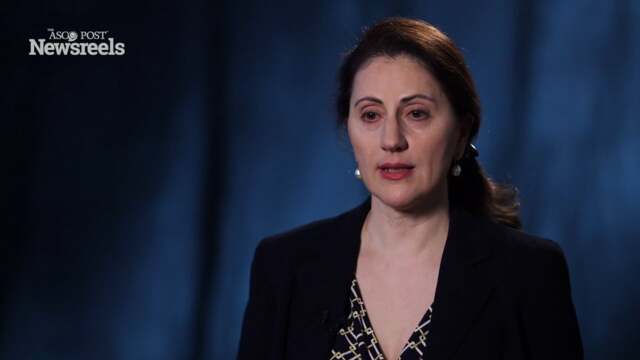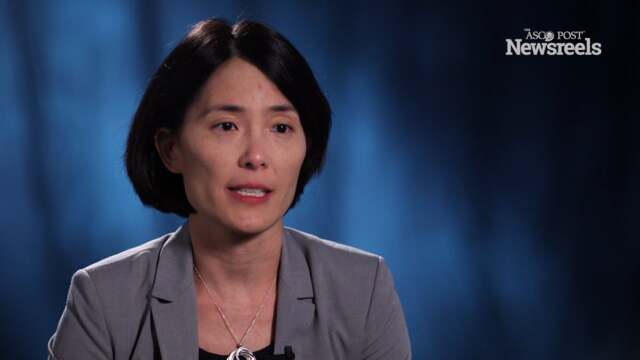Philip Bonomi, MD, on Results of the Romana 1 and Romana 2 Trials
2015 IASLC World Conference on Lung Cancer
Philip Bonomi, MD, of Rush Medical College, summarizes the findings on anamorelin and its use in advanced NSCLC for improvement in anorexia/cachexia symptoms (Abstracts ORAL 29.01, ORAL 29.02).
Roy S. Herbst, MD, PhD
Roy S. Herbst, MD, PhD, of the Smilow Cancer Hospital at Yale Cancer Center, discusses his findings of a phase III study comparing carboplatin/paclitaxel or carboplatin/paclitaxel/bevacizumab with or without concurrent cetuximab in advanced non–small cell lung cancer (Abstract PLEN04.01).
Philip Bonomi, MD
Philip Bonomi, MD, of Rush Medical College, summarizes a debate on two important issues: choosing between surgery and stereotactic body radiation therapy (SBRT) in operable NSCLC, and whether or not to use SBRT for nonbiopsied lung nodules (Abstract PC 01).
Vassiliki Papadimitrakopoulou, MD
Vassiliki Papadimitrakopoulou, MD, of MD Anderson Cancer Center, discusses the ways in which patients, investigators, and pharmaceutical companies are working together to accelerate research and access to care (Abstract MTE 02.01).
Alice T. Shaw, MD, PhD
Alice T. Shaw, MD, PhD, of Massachusetts General Hospital, summarizes efficacy and safety data from studies on crizotinib, brigatinib, and alectinib for ALK-positive non–small cell lung cancer (ORAL 33.03, 33.06, 33.07).
Christine D. Berg, MD
Christine D. Berg, MD, of Johns Hopkins Medicine, discusses how increased insurance coverage should dramatically increase lung cancer screening. If done correctly—which will be a challenge—screening will help improve the prognosis of patients with lung cancer (Abstract PLEN 01.01).





